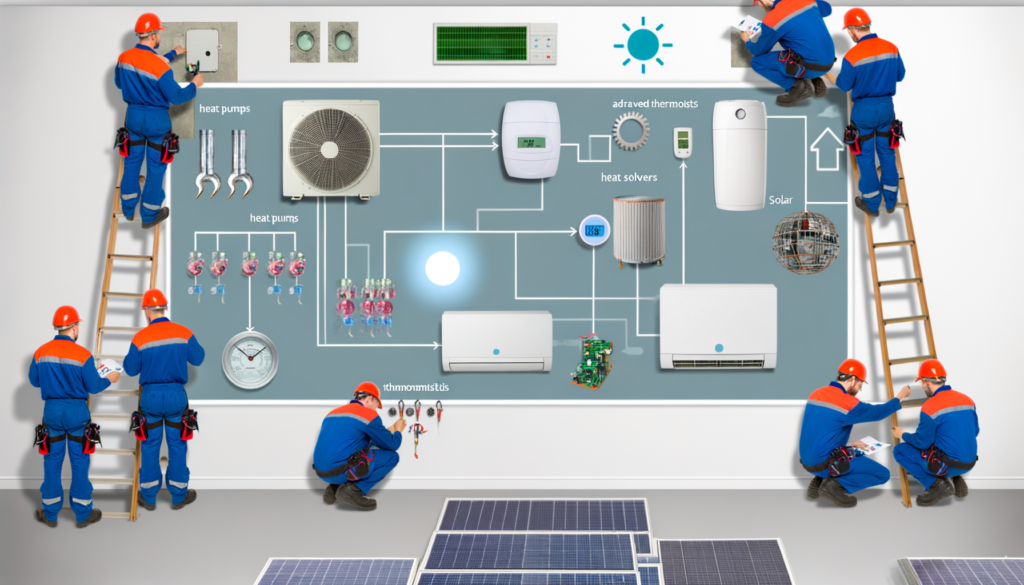Assess Current Systems
Before implementing energy-efficient HVAC systems, it is important to assess the current systems in place. This includes evaluating the age, efficiency, and overall performance of the existing HVAC system. Identifying areas where improvements can be made will help in determining the best course of action for implementing energy-efficient solutions.
Upgrade to High-Efficiency Equipment
One of the most effective ways to improve energy efficiency in HVAC systems is to upgrade to high-efficiency equipment. This can include replacing outdated units with Energy Star certified models, installing variable speed motors, and incorporating energy-efficient features such as programmable thermostats. By investing in high-efficiency equipment, businesses can significantly reduce energy consumption and lower utility costs.
Implement Zoning Systems
Zoning systems allow for more precise control over heating and cooling in different areas of a building. By dividing the space into zones with separate thermostats, businesses can avoid heating or cooling empty rooms and adjust temperatures based on occupancy and usage patterns. This not only improves comfort levels for occupants but also reduces energy waste by only conditioning occupied spaces.
Regular Maintenance and Tune-Ups
Regular maintenance and tune-ups are essential for ensuring the optimal performance of HVAC systems. Dirty filters, clogged ducts, and other issues can impede efficiency and lead to increased energy consumption. By scheduling routine maintenance checks and tune-ups, businesses can keep their HVAC systems running smoothly and efficiently, reducing overall energy usage.
Invest in Building Automation Systems
Building automation systems (BAS) offer advanced control over HVAC systems, allowing for greater efficiency and energy savings. BAS can automatically adjust temperature settings based on occupancy, time of day, and external conditions, optimizing HVAC performance and reducing energy waste. By investing in BAS, businesses can achieve significant energy savings while improving comfort and productivity in their buildings.
Implementing energy-efficient HVAC systems is crucial for reducing energy consumption, lowering utility costs, and minimizing environmental impact. By following these tips and investing in high-efficiency equipment, businesses can achieve substantial energy savings and create a more sustainable and comfortable indoor environment.

